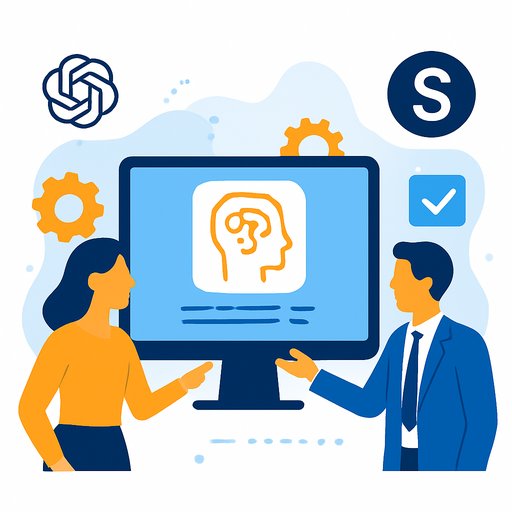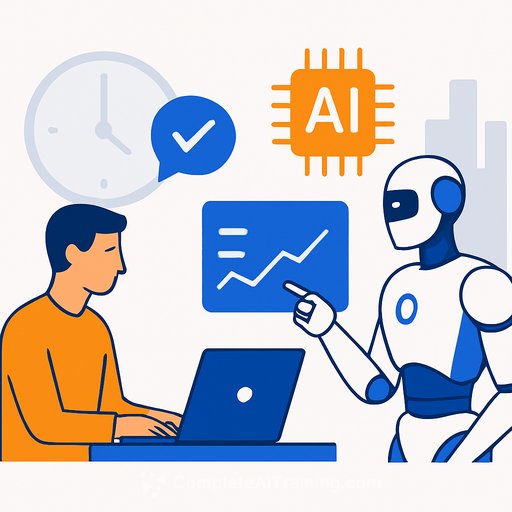AI in Tourism: Why Guests Aren't Feeling It Yet
Published: October 22, 2025
A new report from Amperity on AI in travel and airlines points to a simple truth: heavy AI investment isn't translating into better guest experiences yet. Only 35% of tourism brands have AI in direct guest communications, and even fewer feel ready to scale it across operations.
For customer support leaders, that gap shows up as longer queues, generic responses, and missed chances to resolve issues before they escalate. The fix isn't more tools. It's cleaner data, tighter guardrails, and teams that know how to ship reliable guest-facing workflows.
What the survey shows
- 96% expect to maintain or increase AI investment next year.
- Over 80% use AI somewhere (mostly marketing, sales, and service), but guest-facing automation remains limited.
- Two big fears hold teams back: data accuracy and AI reliability in front of customers.
Why support teams should care
Support is where trust is won or lost. If AI gives wrong answers, pushes irrelevant offers, or fails during peak season, your queue and CSAT take the hit. The upside is clear: targeted AI can deflect routine volume, personalize outreach, and speed resolutions-if the foundations are solid.
The blockers you can remove
- Fragmented data: More than half report incomplete or siloed guest data. That kills personalization and increases error rates.
- Training gap: 36% of companies offer no formal AI training. Teams struggle to deploy, monitor, and improve AI in live workflows.
What's working: CDPs and unified data
Brands using Customer Data Platforms (CDPs) report faster adoption and better guest-facing results. A CDP centralizes identities and behavior, so AI can reference one source of truth. That reduces hallucinations, improves targeting, and makes operations repeatable.
If you're still stitching spreadsheets and APIs mid-flight, start with identity resolution and event-standardization. No clean data, no reliable AI.
A practical playbook for customer support leaders
- Unify first-party data: Resolve identities across booking, loyalty, messaging, and support history. Define a single profile per guest.
- Pick safe, high-impact use cases: Knowledge retrieval for policy and itinerary questions, disruption comms, pre-arrival FAQs, and post-stay feedback handling.
- Design for reliability: Retrieval-augmented generation (RAG) with strict source controls. No free-form answers without citations.
- Human-in-the-loop: Agents approve AI outputs for escalations, refunds, or sensitive cases. Log every decision.
- Guardrails: PII masking, rate limits, fallback to human, and clear opt-out for guests.
- Continuous evaluation: Track accuracy, deflection, and guest sentiment weekly. Retrain on real conversations and edge cases.
- Upskill the team: Short, role-based training on prompts, QA, and exception handling. Make "AI operations" part of the support playbook.
Quick wins you can ship in 30-60 days
- Proactive disruption updates: Automated alerts with next-best actions (rebook options, seat changes, credits) based on guest profile.
- RAG assistant for agents: Pull policies, route rules, and partner terms into a single answer panel with sources.
- Pre-arrival concierge: Timely messages for check-in, transport, and local tips tied to itinerary and preferences.
- Post-stay triage: Classify feedback, auto-respond to simple cases, and route high-risk reviews to senior agents.
Metrics that matter
- First contact resolution (FCR) and time to resolution
- Deflection rate and containment without recontact
- Answer accuracy and source coverage
- CSAT/NPS for AI-assisted vs. non-assisted interactions
- Opt-out rate and escalation rate
Training and governance aren't optional
The report highlights a simple pattern: teams with structured training and clear governance scale AI faster. Set policies for data usage, model oversight, A/B testing, and rollback. Treat prompts, retrieval sources, and evaluation datasets like product assets, not experiments.
If your team needs a fast path to practical skills, explore focused programs like role-based AI courses and certifications. For support teams, see Courses by Job at Complete AI Training.
CDP basics (if you're evaluating)
A CDP helps unify guest profiles and events across systems so AI can act with context and fewer mistakes. If you're comparing tools, start with identity resolution quality, real-time ingestion, consent management, and integration depth with your support stack.
For an overview of CDPs, the CDP Institute provides helpful definitions and patterns.
The path ahead
The industry is investing. Guests just aren't benefiting yet. Close the gap by fixing data, focusing on a few guest-facing workflows, and training your team to run AI like an operational system, not a demo.
Do less, but make it reliable. Then scale what works.
Your membership also unlocks:






